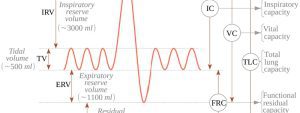Maintaining healthy lungs is crucial for your overall well-being, as they are vital in supplying oxygen to your body. However, various factors can impact your lung capacity and your lungs’ functioning. Let’s explore some common causes of reduced lung capacity and how they can affect you:
Smoking and Lung Health
Smoking is one of the leading causes of lung damage and reduced lung capacity. The harmful chemicals in tobacco smoke irritate the lungs, causing inflammation and narrowing of the airways. Over time, smoking can lead to chronic obstructive pulmonary disease (COPD), emphysema, and lung cancer, significantly impairing lung function.
Environmental Pollution
Exposure to air pollutants such as particulate matter, ozone, nitrogen dioxide, and sulphur dioxide can also contribute to reduced lung capacity. Pollutants can irritate the airways, trigger inflammation, and impair lung function, particularly in individuals with respiratory conditions like asthma or allergies.
Occupational Hazards
Specific workplaces expose employees to hazardous substances like dust, chemicals, and fumes, damaging lung tissue and reducing lung capacity over time. Industries such as mining, construction, agriculture, and manufacturing pose risks to respiratory health if proper safety measures are not implemented.
Genetics and Respiratory Conditions
Genetic factors can influence lung development and function. Conditions such as alpha-1 antitrypsin deficiency, cystic fibrosis, and hereditary interstitial lung diseases can affect lung capacity and increase susceptibility to respiratory problems.
Aging and Lung Function
As we age, natural changes in lung structure and function occur. Lung tissue becomes less elastic, chest muscles weaken, and lung capacity may decrease. Aging adults may experience reduced lung efficiency and increased vulnerability to respiratory infections and diseases.
Lifestyle Factors
Confident lifestyle choices can impact lung health and contribute to reduced lung capacity. Poor nutrition, lack of exercise, and exposure to second-hand smoke can all affect respiratory function. Maintaining a healthy diet, staying physically active, and avoiding smoking can help preserve lung function and overall health.
Understanding the causes of reduced lung capacity empowers you to make informed decisions about your respiratory health. By identifying these culprits—smoking, environmental factors, genetic predisposition, occupational hazards, or lifestyle choices—you can take proactive steps to protect and improve your lung function. At Care Net Consultants, we are committed to supporting you in maintaining healthy lungs and overall well-being. If you have concerns about your lung health or want to learn more about protecting your respiratory system, please get in touch with us.




